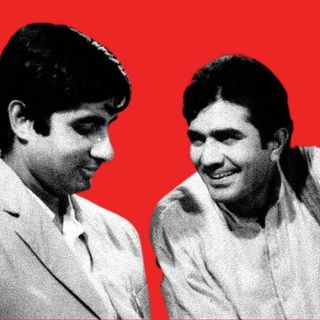
The Internet Is Outraged at ‘Hello’, ‘Hey’ Being Called Unprofessional Language
Reflective of a colonial mindset disguised as “professionalism,” such customs, unfortunately, continue to be common in India — furthering classism along the way.

Did you know greeting your workplace superiors — or, perhaps, even colleagues — with “Hey” or “Hello” was deemed unprofessional? Many netizens didn’t. So, when an individual named “Sandeep” shared these pearls of wisdom with someone called “Shreyas” over a WhatsApp chat — berating the latter’s usage of the salutation as “offensive” — the internet woke up to a collective TIL-moment, and came up with “professional” responses like, “I wish to respectfully inform you that offwardly is the direction in which I would like you to f**k.”
This is a discourse that spills beyond the limits of the internet — betraying the anxiety of many around what is professional and what isn’t. So, despite netizens having no idea who Shreyas and Sandeep are and what their professional relationship is like, the screenshot went viral. Perhaps, that’s because it struck a chord with millions of people who have met some version of Sandeep in course of their careers.
The criticism of “hey” echoes a desire to extract respect from one’s supposed inferiors. “I had a boss like this in India who insisted that we call him ‘Sir,’ while we were on [a] first-name basis with everyone else. When you have to ask for respect, you’ve already lost all of it. We had a business casual dress code for work and nobody cared if you wore casuals to work, but he wanted everyone in a suit and tie… Of course, he couldn’t understand why everyone on his team left so quickly after he joined,” wrote one Reddit user.
Behind these linguistic mandates camouflaged as “appropriate” office-speak, though, there is a desire to protect classist norms and traditions. Reflective of a colonial mindset disguised as “professionalism,” such customs around languages and attires, unfortunately, continue to be common in India, alongside many other parts of the world — furthering classism, in the process. Quite naturally, then, the arbitrary rules of professionalism laid down by Sandeep — who, arguably, crossed some professional boundaries themselves by sending a work-related text to Shreyas on their personal number — sparked outrage online.
Related on The Swaddle:
Why Second‑Wave WFH Burnout Feels So Different From Regular Work Stress
“Always hated th[e] idea that certain greetings or word choices are disrespectful or unprofessional. You’re not offended because of a word, you’re offended because you associate certain words with certain classes of people. And God forbid you [are] addressed as someone lower class. There’s nothing worse,” commented another individual on the internet.
The classism embedded in such conventions — that do little other than boost people’s egos — has been drawing censure for years. Often, the “proper” way of speaking to one’s seniors is only achieved by those who have access not (only) to education, but to privileged systems of knowledge. “We are told that there is one correct form of English… Not only is this classist, but it fortifies the idea that English has a “proper” form — even though every variation of English has been constructed. The kind of English that is privileged in job interviews, for instance, was made up like every other kind of English; it has no special value,” notes a 2016 article on Everyday Feminism.
Indeed, the rules are rather arbitrary — according to Sandeep, “hello” and “hey” are unprofessional, but “hi” is not. Reason: unknown. Given that in a classist world, one’s socio-economic capital determines their worth, perhaps, the rule is to simply follow what the socio-economically privileged dictate — no questions asked.
“Some people would say that part of being a “professional” is knowing your context and code-switching to suit the audience. I am conflicted… I do not believe we should have to conform to middle-and-upper-class expectations of language in order to do our jobs well. Why is it such a challenge to be a good scholar-practitioner of higher education and still ‘sound’ like myself?” Sonja Ardoin, an academic living in the U.S., argued in 2018. Her “preferred and familiar word choice, and thus language and voice,” was deemed “not good enough,” “too low brow,” and “unprofessional” by the editor of a book chapter she had written. “The feedback was ironic, really, because I was writing about how social class and classism show up in student affairs, and here it was showing up in the process!” she added.
Related on The Swaddle:
Pandemic Isolation Has Been a Relief for Many Who Don’t Fit into Society’s Norms
Rather than allowing one’s work to speak for their professionalism, the undue reliance on language, borders on fussy — or to put it formally, on “pedantic.” Not to mention, it diverts one’s energy from their work product to choosing between “Hi” or “Hello” — a needless exercise that often causes people to stressfully recheck the language in their emails more than in the draft they’re attaching with it.
Arguably, this weaves into a workplace environment that celebrates red tape, even in the form of how run-of-the-mill, process-related correspondence happens. “Toxic culture perpetuates skewed office relationships, biases, and judgments, dogmatic rules and restrictions that bog people down, and fearful energies that threaten an individual’s ‘safe’ feeling in his or her role,” Atul Mishra from The/Nudge Foundation, an Indian NGO, had explained.
At a time when more and more people are getting burnt out at work, the toxic culture that Sandeep appeared to represent doesn’t just hurt productivity, but likely also catalyzes burnout among workers.
So, irrespective of what Sandeep may have been taught at the beginning of their career by other Sandeeps, it is high time we, as a society, moved on from perpetuating classist ideologies disguised as “professionalism.” What would, undoubtedly, be more professional is taking a leaf out of Portugal’s and France’s books to respect employees’ personal space by not bothering them with work beyond their committed hours — besides refraining from sending them unwarranted texts on their personal numbers. Shreyas will, perhaps, appreciate the latter.
Devrupa Rakshit is an Associate Editor at The Swaddle. She is a lawyer by education, a poet by accident, a painter by shaukh, and autistic by birth. You can find her on Instagram @devruparakshit.
Related


The Buzz Cut: Nation Becomes Mathematics Expert While Calculating Timeline of Celebrity Pregnancy
